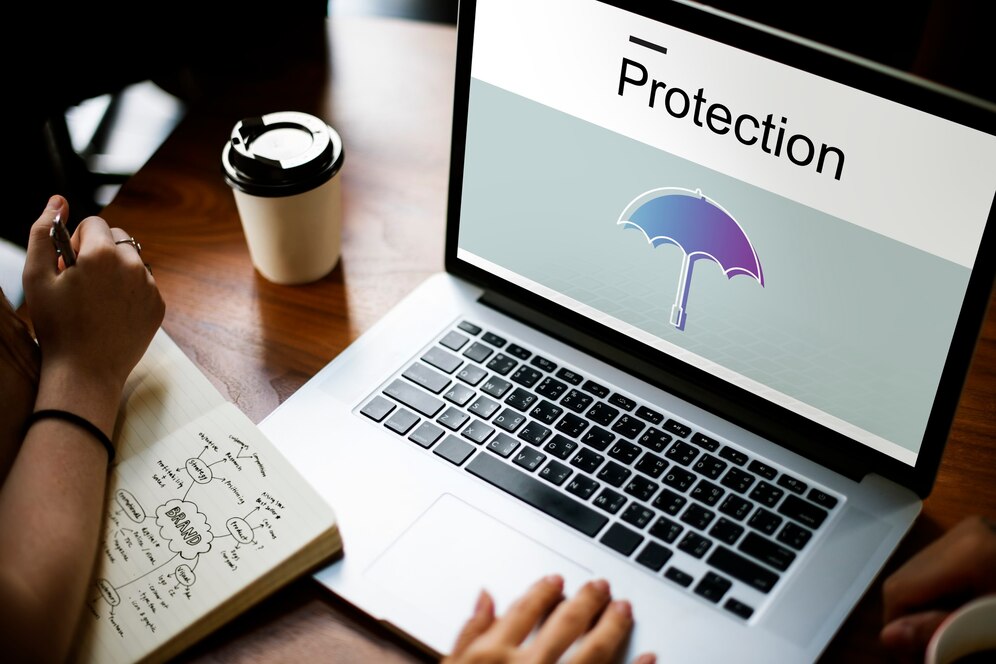A Comprehensive Guide to E-commerce Security
In today’s digital landscape, e-commerce security is paramount. With cyber threats on the rise, protecting your Shopify store and your customers’ data is essential for maintaining trust, safeguarding sensitive information, and ensuring the long-term success of your business. In this comprehensive guide, we’ll explore the importance of e-commerce security, common threats facing online stores, and best practices for keeping your Shopify store safe and secure.
Importance of E-commerce Security:
E-commerce security is critical for both businesses and consumers. For businesses, maintaining a secure online environment is essential for protecting valuable assets such as customer data, financial information, and intellectual property. A security breach can have devastating consequences, including financial loss, damage to reputation, and legal liabilities. For consumers, security breaches can result in identity theft, fraud, and unauthorized access to sensitive personal information. By prioritizing e-commerce security, businesses can build trust with their customers, safeguard their reputation, and create a secure environment for online transactions.
Understanding Common Security Threats for Online Stores:
Online stores face a myriad of security threats. They ranging from data breaches and malware infections to phishing scams and denial-of-service (DoS) attacks. Hackers and cybercriminals are constantly evolving their tactics to exploit vulnerabilities in e-commerce platforms and exploit unsuspecting businesses and consumers. Common security threats for online stores include:
– Data breaches:
Unauthorized access to sensitive customer information, such as credit card numbers, email addresses, and passwords.
– Malware infections:
Installation of malicious software on e-commerce websites to steal data, disrupt operations, or compromise security.
– Phishing scams:
Deceptive emails, messages, or websites designed to trick users into revealing sensitive information, such as login credentials or payment details.
– Denial-of-service (DoS) attacks:
Deliberate attempts to overwhelm a website or server with traffic, causing it to become unavailable to legitimate users.
– Man-in-the-middle attacks:
Interception of communication between a user and a website to steal or manipulate data transmitted between them.
Implementing SSL Encryption for Data Protection for Ecommerce Security:
SSL (Secure Sockets Layer) encryption is a fundamental security measure for protecting data transmitted between a website and its users. By encrypting data in transit, SSL encryption ensures that sensitive information such as login credentials, payment details, and personal information remains secure and private. Shopify offers built-in SSL encryption for all its stores. It provides a secure connection between the user’s browser and the Shopify servers. Additionally, Shopify provides free SSL certificates for custom domains, allowing merchants to secure their entire website with HTTPS encryption.
Choosing Secure Payment Gateways and Processors:

Selecting a secure payment gateway is crucial for ensuring the safe and secure processing of online transactions. Shopify offers a range of secure payment gateways and processors. They comply with industry standards and regulations, such as PCI DSS (Payment Card Industry Data Security Standard). When choosing a payment gateway, look for providers that offer robust security features. For example, encryption, tokenization, and fraud detection tools. Additionally, ensure that the payment gateway is compatible with Shopify and supports your preferred payment methods and currencies.
Implementing Two-Factor Authentication for Admin Accounts:
Two-factor authentication (2FA) adds an extra layer of security to user accounts. It requires users to provide two forms of identification before accessing their accounts. This typically involves something the user knows (such as a password). Additionally, something the user has (such as a unique code sent to their mobile device). By implementing 2FA for admin accounts, you can prevent unauthorized access to your Shopify store. You will also protect sensitive information from being compromised. Shopify offers built-in support for 2FA, allowing merchants to enable this security feature for their admin accounts with ease.
Regularly Updating Shopify and App Installations for Security Patches:
Keeping your Shopify store and app installations up to date is essential for protecting against security vulnerabilities and exploits. Shopify regularly releases security patches and updates to address known vulnerabilities and enhance the security of its platform. Likewise, app developers frequently release updates to their apps to address security issues and improve performance. Make sure to regularly check for updates to your Shopify store and installed apps. Apply them promptly to ensure that your store remains protected against security threats.
Utilizing Strong Passwords and User Permissions for Ecommerce Security:
Strong passwords and user permissions are essential for preventing unauthorized access to your Shopify store and sensitive information. Ensure that all user accounts, including admin accounts, use strong, unique passwords that are difficult to guess or crack. Encourage users to use a combination of uppercase and lowercase letters, numbers, and special characters in their passwords. Also, avoid using easily guessable passwords such as “password123” or “admin.” Additionally, implement user permissions to restrict access to sensitive areas of your Shopify store. And limit the actions that users can perform based on their roles and responsibilities.
Implementing Firewalls and DDoS Protection Measures:
Firewalls and DDoS (Distributed Denial of Service) protection measures are essential for safeguarding your Shopify store against cyber attacks and malicious activity. Firewalls act as a barrier between your store and the internet, monitoring incoming and outgoing traffic and blocking unauthorized access and suspicious activity. DDoS protection measures help mitigate the impact of DDoS attacks by detecting and filtering malicious traffic before it reaches your website or server. Shopify provides built-in DDoS protection and firewall capabilities to protect merchants’ stores from cyber threats and ensure continuous availability and uptime.
Conducting Regular Security Audits and Vulnerability Assessments:
Regular security audits and vulnerability assessments are essential for identifying and addressing security weaknesses and vulnerabilities in your Shopify store. Conduct comprehensive security audits of your store’s infrastructure, codebase, and configurations to identify potential security risks and areas for improvement. Additionally, perform vulnerability assessments to identify and prioritize security vulnerabilities, such as outdated software, misconfigurations, or insecure coding practices. Address any identified vulnerabilities promptly and implement measures to mitigate future risks.
Educating Staff on Security Best Practices and Phishing Awareness:
Human error is one of the leading causes of security breaches and data breaches in e-commerce. Educating your staff on security best practices and raising awareness about common threats. For example, phishing scams can help mitigate the risk of security incidents. Provide training and resources to help employees recognize phishing attempts. Avoid suspicious links or attachments, and report any security concerns or incidents promptly. Encourage a culture of security awareness and vigilance among your team members. And regularly reinforce the importance of following security protocols and procedures.
Implementing PCI DSS Compliance Measures for Payment Processing:
If your Shopify store accepts credit card payments, compliance with the Payment Card Industry Data Security Standard (PCI DSS) is essential. It ensures the security of cardholder data and maintaining the trust of your customers. PCI DSS sets rigorous security standards and requirements for merchants that handle credit card transactions, including encryption, access control, and regular security testing. Ensure that your Shopify store and payment processing systems are PCI DSS compliant. And implement measures to protect cardholder data at every stage of the transaction process.
Utilizing Fraud Prevention Tools and Services:
Fraud prevention tools and services are essential for protecting your Shopify store against fraudulent transactions and chargebacks. Implement fraud detection and prevention measures. For example, address verification, card verification, and transaction monitoring, to identify and mitigate suspicious activity in real-time. Additionally, consider using third-party fraud prevention services and tools. The ones that specialize in detecting and preventing fraudulent behavior, such as fraud scoring, machine learning algorithms, and device fingerprinting. By leveraging fraud prevention tools and services, you can reduce the risk of financial loss and maintain the integrity of your e-commerce operations.
Backing Up Store Data Regularly for Ecommerce Security:

Regular data backups are essential for protecting your Shopify store against data loss, corruption, and security breaches. Back up your store’s data regularly. That includes customer information, product data, order history, and configuration settings, to a secure offsite location or cloud storage provider. Ensure that your backup process is automated, reliable, and includes versioning capabilities. That will allow for easy restoration of data in the event of a security incident or data loss event. Test your backup and restoration processes regularly to ensure that they are working correctly. Be certain your store’s data is adequately protected.
Monitoring for Suspicious Activity and Unauthorized Access:
Proactive monitoring for suspicious activity and unauthorized access is essential for detecting and responding to security threats in real-time. Implement security monitoring tools and services that provide visibility into your store’s infrastructure, network traffic, user activity, and system logs. Monitor for signs of unusual or unauthorized activity. That includes unauthorized login attempts, unusual file modifications, or abnormal network traffic patterns, and investigate any suspicious incidents promptly. Implement alerts and notifications to notify you of potential security incidents or breaches. Also establish incident response procedures to address security threats effectively.
Creating a Response Plan for Security Incidents:
Despite your best efforts to prevent security incidents, it’s essential to have a response plan in place to address potential security breaches or data breaches promptly. Develop a comprehensive security incident response plan that outlines roles, responsibilities, and procedures for detecting, responding to, and mitigating security incidents. Establish clear communication channels and escalation paths for reporting security incidents. And designate individuals or teams responsible for coordinating the response efforts. Test your incident response plan regularly through tabletop exercises and simulations to ensure that it is effective. And that all stakeholders are prepared to respond to security incidents effectively.
Encrypting Customer Data and Sensitive Information:
Encryption is a critical security measure for protecting sensitive data and information stored in your Shopify store. Exmamples include customer data, payment information, and order details. Implement encryption technologies, such as SSL/TLS encryption, to encrypt data in transit between your store and your customers’ browsers, ensuring that it remains secure and private during transmission. Additionally, encrypt sensitive data at rest using encryption algorithms and secure encryption keys to protect it from unauthorized access or disclosure. By encrypting customer data and sensitive information, you can safeguard it from interception, tampering, and unauthorized access, helping to maintain the confidentiality and integrity of your e-commerce operations.
Implementing CAPTCHA and Other Bot Detection Measures:
CAPTCHA (Completely Automated Public Turing test to tell Computers and Humans Apart) and other bot detection measures are essential for protecting your Shopify store against automated attacks and malicious bots. Implement CAPTCHA challenges on login forms, registration pages, and checkout processes. Verify that users are human and prevent automated bots from accessing your store or submitting spammy or fraudulent requests. Additionally, use bot detection and mitigation tools and services that can identify and block malicious bots in real-time. It helps to protect your store from bot-driven attacks such as account takeovers, credential stuffing, and spamming.
Securing Third-party Integrations and APIs:
Third-party integrations and APIs are essential for extending the functionality of your Shopify store and integrating with external services and platforms. However, they can also introduce security risks and vulnerabilities if not properly secured and managed. Ensure that any third-party integrations or APIs used in your Shopify store adhere to security best practices and standards. Examples are encryption, authentication, and authorization. Conduct thorough security assessments and due diligence before integrating third-party services or applications with your store. Also regularly monitor and audit their security posture to ensure ongoing protection against security threats and risks.
Staying Updated on Security News and Trends on Ecommerce Security:
The field of e-commerce security is constantly evolving, with new threats, vulnerabilities, and attack vectors emerging regularly. Stay informed and up to date on the latest security news, trends, and best practices by following industry-leading security blogs, forums, and publications, attending security conferences and webinars, and participating in security communities and forums. Keep abreast of emerging threats and vulnerabilities that may affect your Shopify store. And proactively implement measures to mitigate risks and enhance the security of your e-commerce operations.
Compliance with GDPR and Other Data Protection Regulations:
Compliance with data protection regulations such as the General Data Protection Regulation (GDPR) is essential for protecting the privacy and rights of your customers and ensuring legal compliance with international data protection laws. If your Shopify store collects, processes, or stores personal data from European Union (EU) residents, you must comply with the GDPR’s stringent requirements for data protection, transparency, and consent management. Ensure that your store’s privacy policy and terms of service are GDPR-compliant, and implement measures to obtain and document user consent, provide transparency about data processing practices, and enable users to exercise their rights under the GDPR, such as the right to access, rectify, or delete their personal data.
Partnering with Reputable Security Providers for Additional Protection:
For added protection and peace of mind, consider partnering with reputable security providers and vendors that specialize in e-commerce security solutions and services. Look for security providers that offer comprehensive security solutions tailored to the unique needs and requirements of e-commerce businesses, such as malware scanning, vulnerability assessments, penetration testing, and incident response services. Choose vendors with a proven track record of excellence, reliability, and customer satisfaction, and ensure that their products and services align with your budget, technical requirements, and security objectives.
E-commerce Security is Critical
In conclusion, e-commerce security is a critical component of running a successful and trustworthy Shopify store. By prioritizing security measures such as SSL encryption, secure payment processing, two-factor authentication, and regular security audits, you can protect your customers’ data, safeguard your store from cyber threats, and build trust and confidence with your audience. By staying informed on the latest security trends and best practices, partnering with reputable security providers, and remaining vigilant against emerging threats, you can create a safe and secure environment for conducting online transactions and ensure the long-term success and sustainability of your Shopify store.


